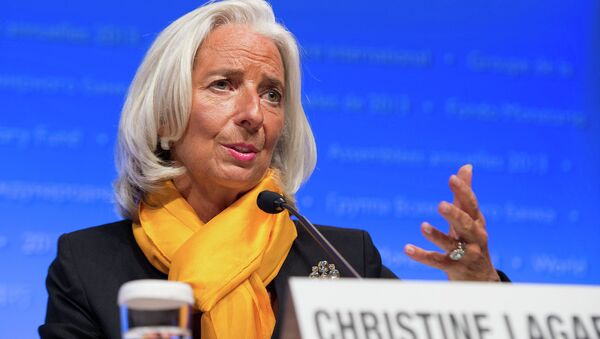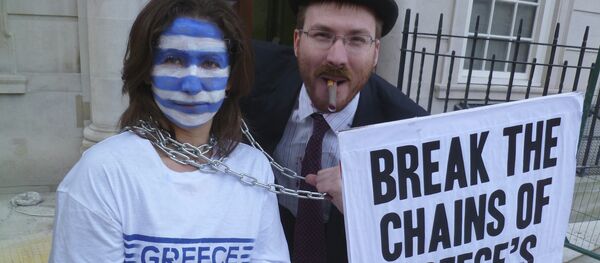As negotiations to unlock the final instalment of Greece's second bailout package continue, there has been speculation that the IMF is becoming increasingly frustrated with the economic progress made by Greece, following the appointment of the anti-austerity Syriza party in January.
This speculation was followed by a report in Spanish newspaper El Mundo, which stated that it would not fund any potential third Greek bailout, citing a lack of "really effective action" as well as the Greek government's decision to re-hire some public employees who were laid off as a result of austerity measures.
The final $8.05 billion (€7.2bn) instalment of the creditors' second bailout package to Greece has been held up by negotiations, amid concerns about Athens' plans to reform the austerity measures that made up the previous deals.
Eurozone Forced to Shell Out
If the reports are true, and the IMF is unwilling to fund more Greek financial aid, then analysts suggest that the Eurozone, along with the European Central Bank (ECB) will be forced to contribute a lot more to a potential third package.
Greece's first two bailout packages totaled a massive $270 billion (€240bn), and although, there have been no agreed plans to give the country more financial aid, there has been speculation that a third package of up to $56 billion (€50 bn) could be given to Athens.
Analysts have suggested that these figures, along with reports that the IMF may opt out of any future aid, will anger some Eurozone members, who are already unhappy at having to contribute so much towards Greece's cause.
IMF SAYS GREECE MADE PRINCIPAL PAYMENT TODAY. By which the IMF means the IMF paid itself on behalf of Greece
— zerohedge (@zerohedge) May 12, 2015
HSBC European economist Fabio Balboni said that there are a lot of obstacles standing in the way of the parties, which could hinder any agreement on new financial aid.
"The focus of the negotiations appears to be shifting to the third program of financial assistance needed after June, also raising the possibility of a referendum to decide on the agreed set of reforms and, ultimately, Greece's Eurozone membership. Creditors appear to be more favorable towards this option, possibly also as a way to overcome the lack of trust towards Greece's authorities. A referendum could also provide a facesaving strategy for the Greek government."
Conflicting Demands Placing Creditors into Question
On top of the Greek government's proposals to repeal current austerity measures put in place by European creditors, various conflicting demands of the IMF and Eurozone have added to the difficulty.
Had to smile at #Greece paying the #IMF with money on deposit at the IMF. But not a trick they can repeat. Another cupboard emptied
— Robin Bew (@RobinBew) May 13, 2015
While the IMF is thought to be opposed to negotiating reforms on Greek labor and pension issues, analysts suggest they would potentially be open to reaching some form of agreement on the country's primary surplus, and perhaps even writing off some of Athens' debt.
However, conversely, the Eurozone — which owns the majority of the Greek debt — is thought to be vehemently against the idea of slashing Greece's debt and negotiating changes to the country's primary surplus, but open to labor and pension reforms.
These conflicting demands have led many to suggest that it will be nearly impossible for Greece to negotiate a deal to unlock its remaining aid.
Meanwhile, critics of the creditors' actions say the protracted nature of the standoff between Athens and other Eurozone officials, plus the differences in demands from the IMF, has damaged the credibility of the Eurozone decision-making, with the risk of Greece running out of money and defaulting on its payments, seemingly increasing.





